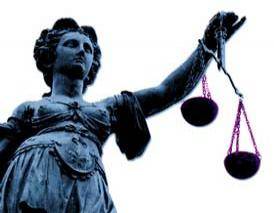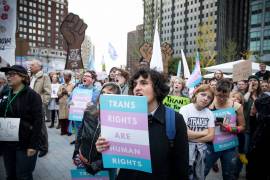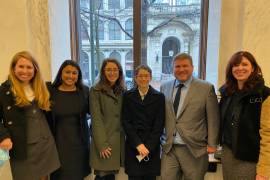
From Marriage Recognition to the Jury Box, the Windsor Decision Continues to Extend the Promise of Equality
Blog Search
Last week, a federal appeals court ruled that the Equal Protection Clause of the U.S. Constitution prohibits excluding lesbians and gay men from juries based on their sexual orientation. This broad ruling from the Ninth Circuit Court of Appeals is yet another example of how the Windsor decision continues to have sweeping impacts across the country, extending its reach beyond the so-called Defense of Marriage Act (DOMA).
Learn more: After DOMA — What It Means for You.
The application of “heightened scrutiny” to classifications based on sexual orientation will make it much harder for states to justify discriminatory laws in a wide range of contexts. The ruling is sure to have an impact on marriage equality cases in the Ninth Circuit and elsewhere, including Lambda Legal’s challenge to Nevada’s marriage ban, now pending before the same court.
But the unanimous decision from a three-judge panel of the Ninth Circuit also brought Windsor into the jury box.
The American jury system is a symbol of our democracy and the right to jury trial is guaranteed by our Bill of Rights and embedded in every one of our state constitutions. The Supreme Court has long recognized that jury service and voting are deeply important civic obligations. As the Court wrote in Powers v. Ohio:
With the exception of voting, for most citizens the honor and privilege of jury duty is their most significant opportunity to participate in the democratic process.
Yet our jury system is plagued by a history of exclusion and discrimination. In many parts of the country, the exclusion of African Americans from juries persisted through the 1960s and beyond. Women did not achieve the right to equal jury service until 1975. Still, discrimination remained, as attorneys continued to rely on harmful race and gender stereotypes to strike potential jurors. It wasn’t until the 1986 case of Batson v. Kentucky that the Supreme Court finally prohibited the discriminatory elimination of otherwise qualified jurors simply on the basis of race. It took another eight years for the Court to extend Batson to cover gender-based discrimination in the selection process, in the case of J.E.B v. Alabama.
However, today at the federal level and in nearly every state, lawyers continue to disqualify potential jurors on the basis of their sexual orientation or gender identity. Until this week, no court had ever held that the U.S. Constitution protected lesbians and gays from jury selection discrimination. In 2000, a California state court became the first in the country to rule that state law prohibited removing jurors on the basis of their sexual orientation. That ruling has since been codified by the California legislature, which remains only one of three states, together with Oregon and Minnesota, with legislation prohibiting such discrimination.
The current case, GlaxoSmithKline v. Abbott Laboratories, involved an anti-trust trial over pricing for HIV medications. During jury selection, Abbott’s lawyer used his first peremptory challenge (a method of removing a juror without stating a reason) to exclude the only juror to have identified himself on the record as gay. Opposing counsel objected, asserting that the Supreme Court’s ruling in Batson prohibited striking jurors based solely on their sexual orientation. The judge questioned whether Batson applied to sexual orientation and overruled the objection.
The Ninth Circuit ruled that Batson did apply and found that the attorney engaged in purposeful discrimination. The Court ordered a new trial. In reaching its decision, the Court noted:
Gays and lesbians may not have been excluded from juries in the same open manner as women and African Americans, but our translation of the principles that lie behind Batson and J.E.B. require that we apply the same principles to the unique experience of gays and lesbians.
The landmark ruling went on to examine the many ways that lesbians and gay men have been systematically excluded from our most important institutions:
Strikes exercised on the basis of sexual orientation continue this deplorable tradition of treating gays and lesbians as undeserving of participation in our nation’s most cherished rites and rituals. They tell the individual who has been struck, the litigants, other members of the venire, and the public that our judicial system treats gays and lesbians differently. They deprive individuals of the opportunity to participate in perfecting democracy and guarding our ideals of justice on account of a characteristic that has nothing to do with their fitness to serve.
Our nation’s courts are charged with safeguarding everyone’s rights and administering justice fairly. Discriminatory practices in jury selection perpetuate historical discrimination, undermine trust in the court system, and deprive potential LGBT jurors from being accessed based on what should be the central criteria: their individual abilities to remain impartial and to carefully consider the evidence.
Last week’s decision brings the LGBT community another step closer to full legal equality, while simultaneously strengthening the integrity of the American judicial system and expanding equal access to justice for all.
Learn more:
· Another Huge Week for LGBT Rights!
· Lambda Legal’s Fair Courts Project




